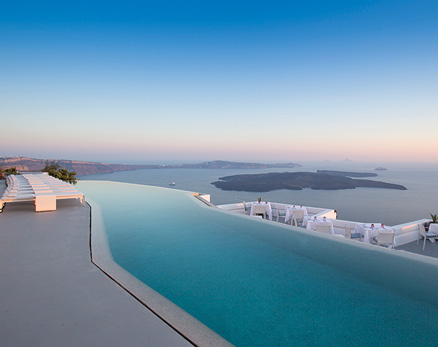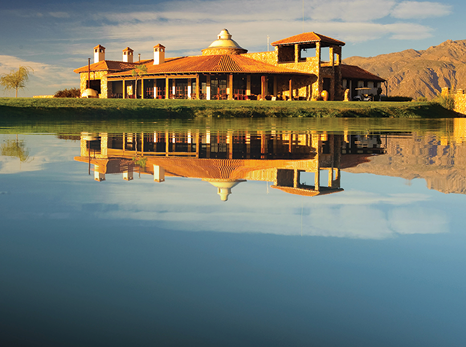- Home
- Media Kit
- Current Issue
- Past Issues
- Ad Specs-Submission
- Ad Print Settings
- Reprints (PDF)
- Photo Specifications (PDF)
- Contact Us

![]()
ONLINE

Grace Touchpoints
Editors’ Note
Robert Swade assumed his current post in September 2016. Previously, he was with the Jumeirah Group as the Group Chief Operating Officer. He had joined Jumeirah Group in 2005, and for the past four years, was also responsible for the global expansion strategy for the Jumeirah brand.
Company Brief
Grace Hotels (gracehotels.com) is an award-winning luxury hotel group that offers sanctuary and quality for discerning guests in the world’s most sought after resorts and cities. The company’s hotels have attracted critical acclaim since the first opened in Greece’s Cyclades Islands in 2007. Each hotel is a wholly authentic expression of its locality, allowing guests to enjoy a true immersion in local culture with an experience incorporating both tradition and modernity. Gastronomy is an integral part of all hotels, with menus showcasing the finest local ingredients combined with international touches. The group is undergoing a period of significant expansion and will soon be present on five continents. Grace Hotels is part of the Libra Group.

View from the pool of Grace Santorini in Thera, Greece
Will you discuss the history and heritage of Grace Hotels and how it has evolved to where it is today?
The company started with a property in Mykonos, Greece, in 2007, which was soon followed by Grace Santorini. From there we have grown globally. The focus of the company has always been on boutique luxury. It’s really about an overarching sense of elegance and simplicity, and service is very much tailored to the needs of every guest, so we’re focused on individualized bespoke experiences.
The properties are boutique – Grace Santorini is 21 keys and Grace Mykonos is 32 keys, so we have a much better opportunity as a brand to engage with guests in a meaningful way and deliver the service they’re looking for.
We have three properties in North America, each with their own distinct personality. The Mayflower Grace in Washington, Connecticut is set amidst 58 acres of landscaped gardens. Its world-class spa makes it a very popular weekend retreat for New Yorkers. The Vanderbilt Grace in the heart of Newport, Rhode Island, is a beautiful, restored mansion originally built by the Vanderbilt family in 1909, and the White Barn Inn, a landmark in delightful Kennebunkport, Maine, has a reputation for its outstanding food and beverage over many years.
In Central America, we have Grace Panama, which is slightly bigger than some of the others at 59 keys and is focused on the corporate market in this fast-growing city. In Argentina, Grace Cafayate is a three-hour drive from the northwestern city of Salta. It is part of a 1,250-acre wine estate, which also includes a spa, polo fields, and an 18-hole championship golf course.
Next year we plan to open Grace Marrakech, which will offer a tranquil retreat on a traditional farmstead surrounded by olive groves, about 25 minutes from the city. We are also busy developing Grace St. Moritz, which will be a combination of a luxury boutique hotel and serviced apartments in the center of the town, overlooking the lake. Further developments include La Dolfina Grace, near Buenos Aires, and Grace Kalamata in the Peloponnese in Greece.
Our properties are focused on authenticity to create a natural sense of connection to the community, the culture, the geography, and the destination.
We seek to be genuine and make sure the service is personalized, and we are attentive to people’s needs but relatively informal. We also know that people are increasingly looking for memories and they are generated by experiences, so engaging with our guests’ emotions is very much a part of our corporate DNA.

Grace Cafayate in Argentina
When you walk into any of the properties, are there characteristics that define it as a Grace property or is it specific to the local market?
There is a golden thread of what makes something a great hotel. Those are the service touchpoints and our own connection that we make with the guests.
The business has evolved, and unlike most traditional brands which focus on process training, we are very much focused on intuitive training around service delivery.
There are touchpoints in every property that make the guest realize they’re having an experience with Grace, but beyond that, we seek to make each of the hotels unique, and connected with the community in which they’re located.
We don’t want the guest to wake up and realize first and foremost that they’re in a great hotel somewhere in the world; we want the guest to wake up and realize they’re in a great hotel in Mykonos, or wherever it might be.
How hard is it to find the right opportunities in terms of acquiring additional properties?
To date, the company has evolved relatively opportunistically. Now, we’re very much in a phase to determine our international growth strategy.
In the short to medium term, do I think we will follow a distribution strategy? No. I think we will focus on a destination strategy, so key letterhead locations that add real value to our brand and its development, and of course appeal to our own market mix.
We have been focusing on boutique luxury and most of our properties are relatively small. This doesn’t mean that our future strategy won’t be about focusing on some larger hotel properties, but it will focus on whether it’s the right product, in the right location, and with the right owner, and not just on the right capital structure to build the hotel but on our ability to enable it to be operated at the highest standard.
Crucially, there has to be an alignment of expectations between the owner of the real estate and Grace as an operator.
The final consideration is whether we can execute operationally – can we go into a market we haven’t been in before and effectively deliver a hotel to the Grace standard that will have commercial viability.
Is it important to build brand awareness around the Grace name or is it about the individual properties?
It’s a bit of both. We want to enhance brand value and we want there to be a clear association between our brand and the service offering of our brand. However, we also want to be sympathetic and recognize that, in some cases, properties have a long-established history and background in the communities in which they operate.
Has the word “boutique” lost some of its meaning because of its overuse? What constitutes a boutique experience today?
I think the term is constantly evolving. Key characteristics that we as a group focus on are the authenticity of the property and the fact that it is culturally connected to the destination.
People are much more focused on creating memories rather than having a home full of things. Boutique luxury now is about individualized and bespoke experiences that we can offer that aren’t possible at big resorts given their nature.•